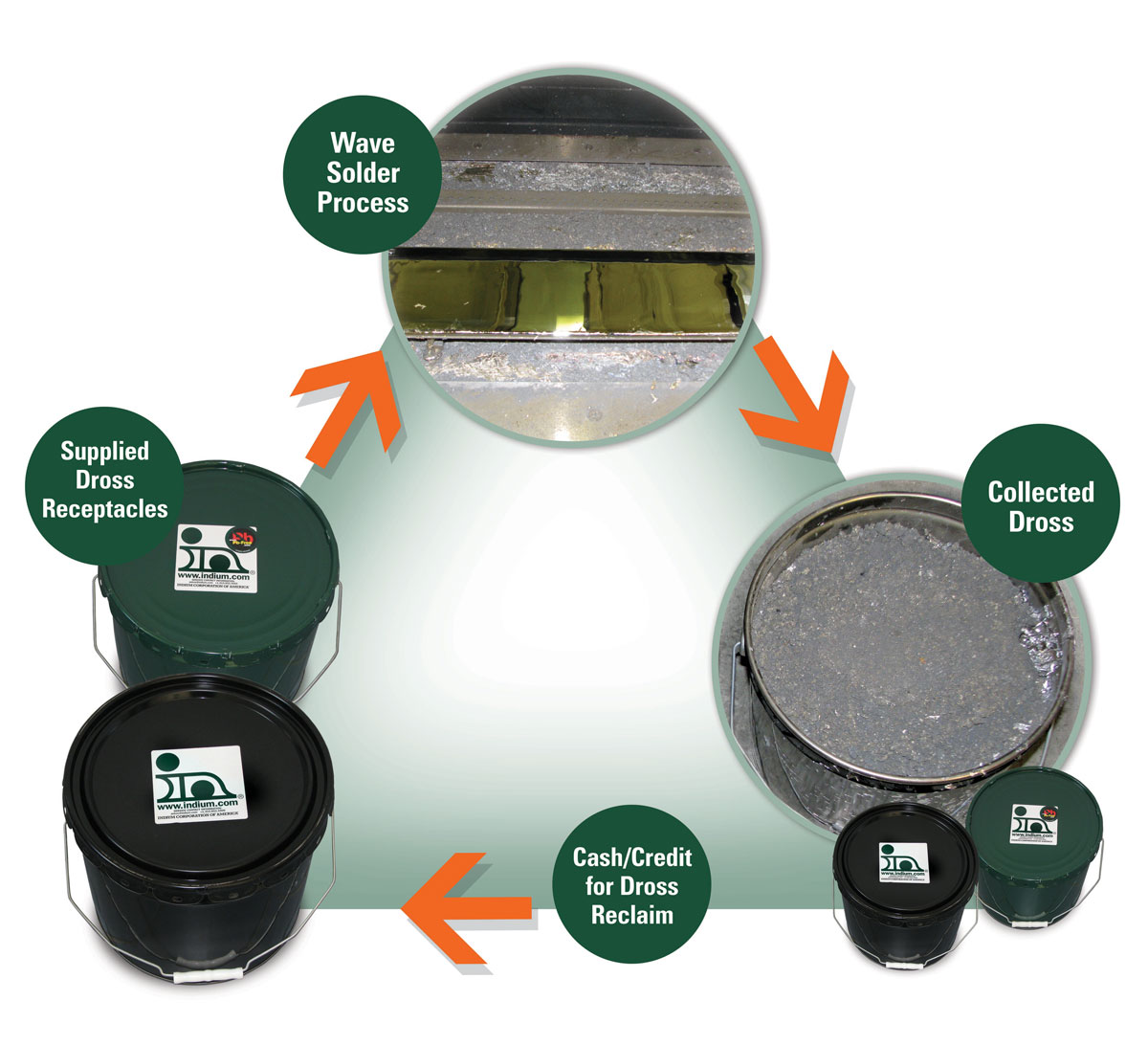Related Reclaim and Recycle: Solders Blog Articles
Back to the Basics: Flux
Flux is a compound that, when heated, helps remove oxides off solderable surfaces, which is critical in allowing them to bond to each other. As almost every metal and alloy will grow an oxide layer over time, flux is one of the most important materials if you are soldering by-hand or in a reflow oven. Because of this, many people want to know: what type of flux should we be using? Read more to find out!
Read MoreBreakdown of SIR Standards
SIR Testing-Surface and Insulation Resistance testing, a form of standard testing where you measure the electrical reliability of a no-clean or a water-soluble flux residue, has existed for a while now.
Read MoreViscosity Versus Tack
Viscosity and tack are two important material properties that define a flux. People often “tack” them together as one, thinking they go hand-in-hand. Typically, this is the case, but not always. This blog discusses the differences between these properties.
Read MoreSpecifying Flux for Pure Indium Preforms
Jim Hisert enlists Meagan Sloan, Technical Support Engineer to recommend a flux for his indium preform application.
Read MoreNot all fluxes and solder pastes are created equal!
The different flux and solder paste formulations mean that some products will have different material lifetimes than others. Understanding the lifetimes and following manufacturers recommendations can help to ensure you get the optimum performance from the material.
Read MoreFeatures & Benefits
- VALUE-ADDED PROCESS – complements complete line of solder products and services
- SIMPLE and EASY – detailed instructions tell you exactly what you need to do
- SAFE FOR THE ENVIRONMENT – environmentally conscious, electrolytic recycling of your used solder into usable solder that is as pure, or more pure, than virgin metal
Assured Recycling
Indium Corporation's solder reclaim program uses state-of-the-art electrolytic recycle processes that removes both organic and metallic impurities from contaminated tin-lead and lead-free solder and solder dross.
If you are a solder user with less regular dross generation, you can still take advantage of Indium Corporation's assured and documented solder recycling. We will:
- Purchase your solder dross and contaminated solder
- Assay the material
- Pay you for the value of the dross and contaminated metal
- Send you a certificate confirming that the metal was properly recycled and not put in a landfill
Acceptable materials for recycling:
- Tin-lead and lead-free soft solder and solder dross containing major components of tin, lead, silver, and copper with virtually any minor metal contaminants
- Unopened jars of solder paste
- Other soft solder alloys that contain greater than 1% bismuth, zinc, cadmium, or other metals may be acceptable, but must be evaluated on a case-by-case basis. If the solder is known to contain these other metals then the solder or dross should be segregated from normal solder and dross.
Assured Recycling Pricing
With the Assured Recycle option, Indium Corporation purchases the material outright. The value of the material to be recycled is determined based on an assay that we perform upon receipt of the metal. Since solder dross generally includes both non-metallic oxygen (as metal oxide) and a small amount of organics from flux, both the metallic content – as a percentage of total weight – and the metallic components must be analyzed.
- Dross with a higher percentage of metal is worth more than dross where the metal has been squeezed out.
- Dross that has a reclaimable amount of silver or gold is worth more than drosses that do not contain precious metals.
- Although Indium Corporation will pay for reclaimable precious metals, we cannot pay published market price because we must involve a secondary reclaim company that specializes in precious metals reclaim.
Indium Corporation can help make arrangements with a licensed waste handler to take back large quantities of used solder paste jars and wipes. Because we cannot accept this waste in our facility, you must ship the waste jars and wipes directly to the third party waste handler, who will then reclaim the metal and plastic from the jars and wipes.
Instructions for Shipping Contaminated Solder and Solder Dross
- Make sure all containers are sealed to prevent leakage or spills. Can lids must be secured.
- Identify your company and the material on the packing slip.
- Containers must be labeled with the Indium Corporation-supplied or comparable labels. Examples of proper labels can be found here.
- Material must be banded and wrapped securely on a pallet. Attach the Indium Corporation-supplied labels only after the material in the cans has cooled to room temperature.
- For shipments of 500 lbs. or more, Indium Corporation will pay the freight charge. Send the shipment “freight collect” via Old Dominion Freight Lines at 800-611-6335. Note Third Party Billing to Indium Corporation c/o Kenco Transportation Management, Attn: Accounts Payable / Acct#12745755, 2001 Riverside Drive, Chattanooga, TN 37406.
- If you are shipping 1,000 lbs. or more of lead-containing material, then the trucking company will need a #9 placard for the truck. Most truckers have these available; however, Indium Corporation will supply one at no cost if you need one.
Destination:
Indium Corporation
Attn: Solder Recycle
80 Scott St.
Elk Grove Village, IL 60007
Phone: 847-439-9135
Sample Bill of Lading
Using Shipping Containers
- Use green buckets for lead-free.
- Use black buckets for tin-lead.
- Include a maximum of 75 lbs. of material per bucket.
- To avoid destroying the labels, apply labels to the side of the buckets after the buckets are full and are at room temperature.
- Seal buckets tightly to avoid accidentally spilling material.
NOTE: We CANNOT accept empty solder containers, rags, wipes, etc. If the shipment contains these items, the shipment will be refused at the dock and the entire shipment will be returned at your expense.



